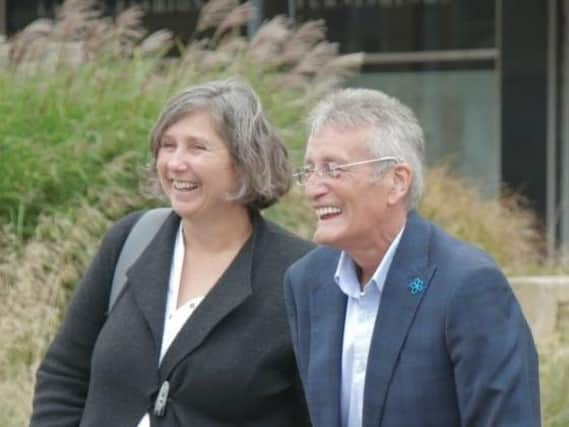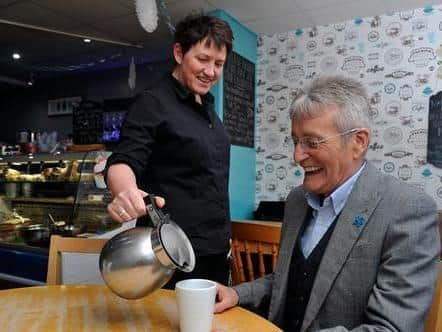Fylde man on living with dementia during lockdown and the 'wonderful' Alzheimer's Society
This article contains affiliate links. We may earn a small commission on items purchased through this article, but that does not affect our editorial judgement.


Structure is something which is in short supply at the moment. Due to the outbreak of the novel coronavirus Covid-19 and the resulting lockdown, society is going through a truly unique and unprecedented moment with wide-reaching financial, cultural, mental, and physical impacts.
As vulnerable as any other sector if not more so, charities are bearing the full brunt of the pandemic-imposed changes. Having already been forced to furlough 380 members of staff, the Alzheimer's Society is anticipating losses of around £35 million, an amount which Sue Swire, Community Fundraiser for Cumbria & Lancs, calls 'devastating'.
Advertisement
Hide AdAdvertisement
Hide AdScrambling to react and meet the needs of the estimated 700,000 people affected by dementia who need their support, the society has reached out to 58,000 of the most vulnerable people and has made 22,000 welfare calls. Since the lockdown was imposed in late March, their Talking Point online support service has seen a 600% usage increase.


But, with all future events originally planned for the coming months now shelved, the charity has turned to initiatives such as the 2.6 Challenge, Cupcake Day, virtual coffee mornings, and quiz nights to make up the still-gaping shortfall. Nevertheless, fundraising issues are casting an ominous shadow over the society's future.
Born in West Yorkshire, Peter has lived in Lytham St Annes for 20 years. Around six years ago, he went to get money out from a cash point and suddenly realised he didn't recognise the machine in front of him. At the age of 58, he was diagnosed with vascular dementia.
After spiralling somewhat after the diagnosis at such a relatively young age, Peter promised his brother he would go to an Alzhemier's Society meeting. Dissuaded by the fact that everyone else at the meeting was older than him, Peter nevertheless agreed to a home visit from one of the society's Dementia Advisers.
Advertisement
Hide AdAdvertisement
Hide Ad"We'd been talking for about half an hour and it was like someone turned the light switch on," says Peter. "That lady saved my life."
Now an Alzheimer's Society Ambassador, Peter was inspired to do something for younger people diagnosed with early onset dementia. He founded Freshers Young Onset Cafés four years ago. "We get together and you wouldn't know who's got dementia and who hasn't," he explains, having also started the Peter Lyttle Foundation, which educates people on what life is like for those with dementia.
"I believe that, if you keep your brain active, you can slow the disease down," Peter explains. "But in lockdown I'm finding that hard. There's only so much cleaning you can do! So I'm ringing people seeing if they're okay. We're there at the end of the phone and if people want to phone me at one o'clock in the morning they can because, at the end of the day, somebody needs help or somebody to listen.
"People with dementia need that contact because they can get lonely, as can those living with people with later-stage dementia - it's a lot of pressure on them, too," Peter adds. "I'm lucky, I've got people who help me, but even my lifestyle's changed massively. I've lost my independence to some degree, which I'm struggling with.
Advertisement
Hide AdAdvertisement
Hide Ad"Lots of other people don't have any support. They're on their own."
Calling the Alzheimer's Society 'so, so important' for those living with dementia, Peter says he still gets a weekly call from Chris Lawson, who works with the charity. "He even calls when he's on holiday," says Peter, who lives on his own in order to best maintain his functional independence. "We all need to feel as if we're needed and it's important that link isn't broken.
"Without the Alzheimer's Society, I dread to think what things would be like for people with dementia."
The Alzheimer's Society has launched an emergency appeal. To find out more, head to www.alzheimers.org.uk/coronavirus-appeal
Comment Guidelines
National World encourages reader discussion on our stories. User feedback, insights and back-and-forth exchanges add a rich layer of context to reporting. Please review our Community Guidelines before commenting.